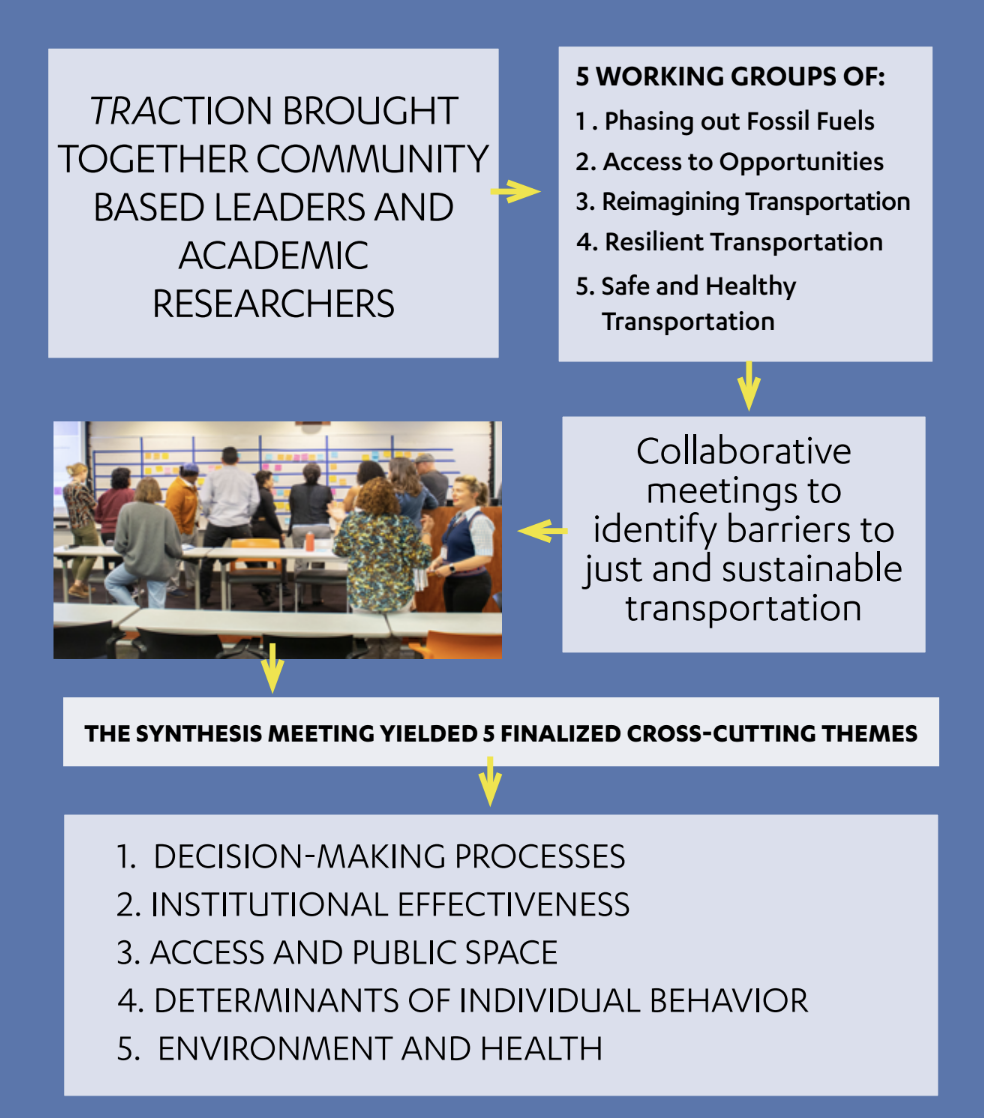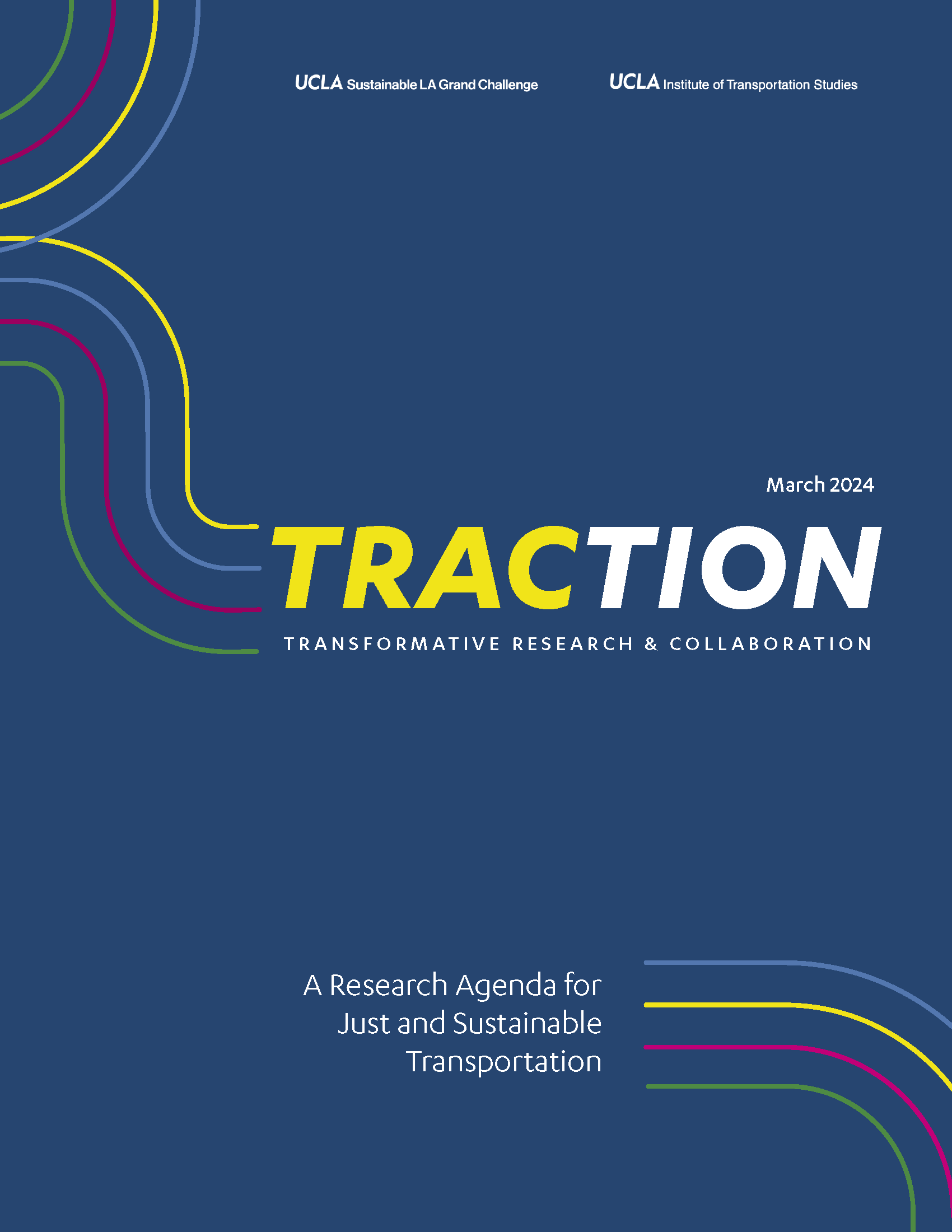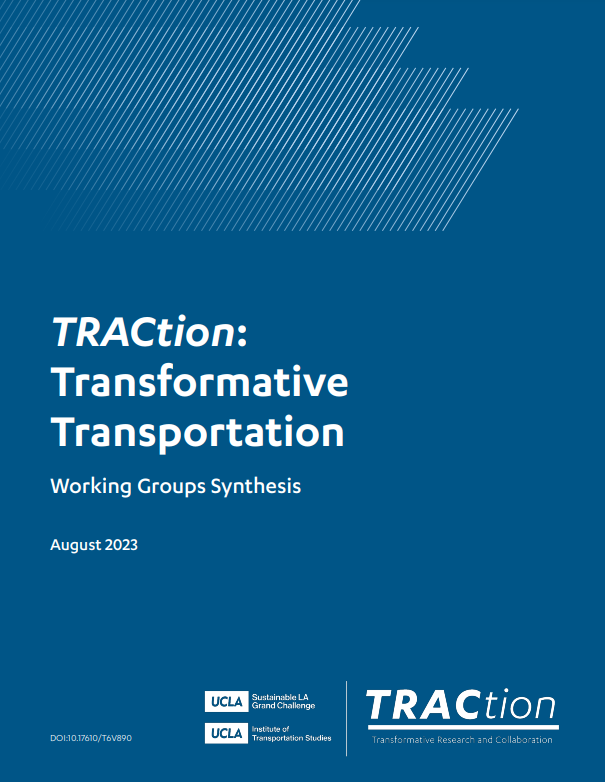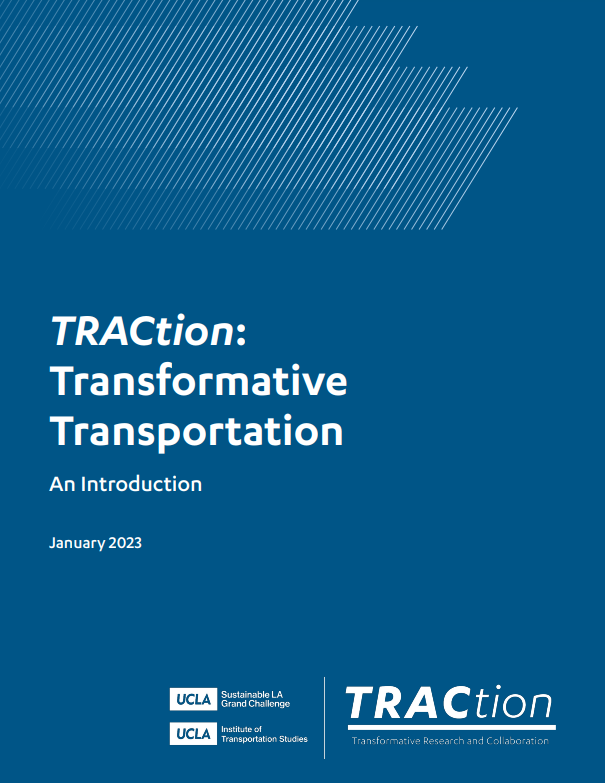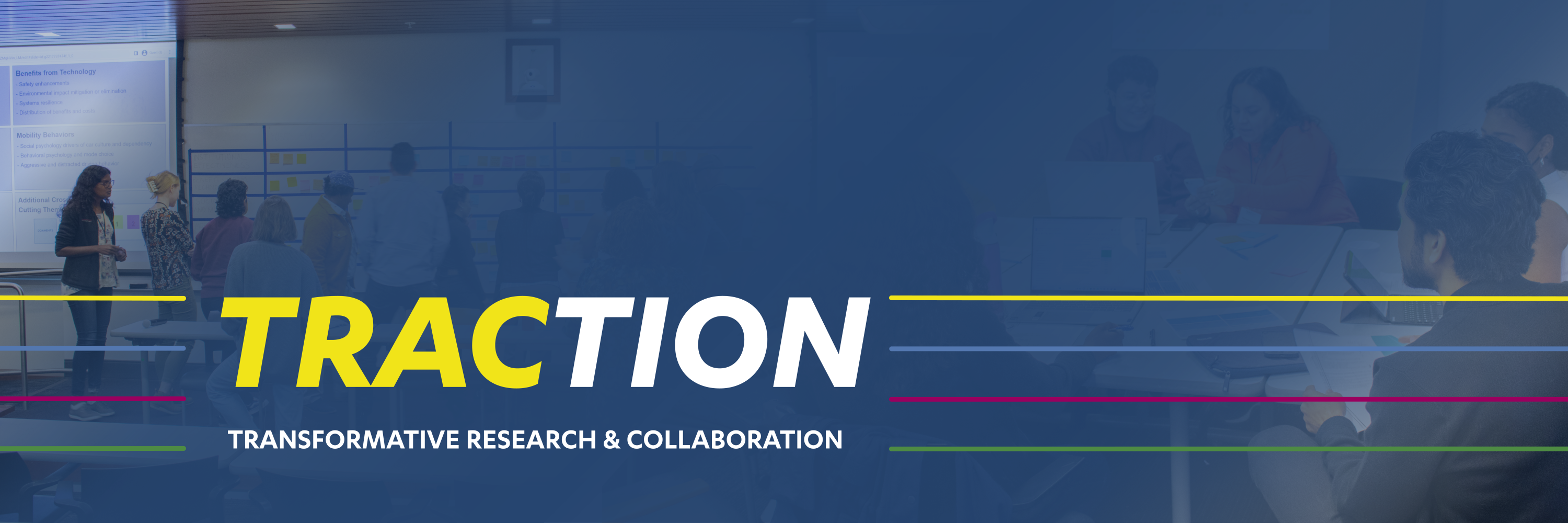
TRACtion: Transformative Research and Collaboration
TRACtion seeks to match the university’s academic expertise with the wisdom and perspectives of community groups and advocacy organizations through engagement in mutually-beneficial collaborations.
TRACtion brought together community based leaders and academic researchers for 17 working group meetings across 5 categories. During working group meetings, participants engaged in a facilitated process to identify barriers to a just and sustainable transportation future in Los Angeles, and which of these barriers were most crucial to address. By the end of the three months of working group meetings, participants and researchers had identified 5 cross-cutting themes:
- Decision-Making Processes: how and why transportation agency staff and elected officials arrive at their decisions.
- Institutional Effectiveness: institutions’ capacity to implement their intended policies and programs.
- Access and Public Space: the factors that drive inclusion and exclusion from public space.
- Determinants of Individual Behavior: cultural and other factors that influence individual behavior.
- Environment and Health: consequences of the transportation system, particularly its effects on air quality and public health.
During summer and fall 2023, a team of faculty, staff, and students conducted focused literature reviews to summarize existing research that might be applicable to the collaboratively-identified transportation justice and sustainability barriers for Los Angeles. The resulting report includes recommendations for future research and policymaking.
Publications
Working Groups
The TRACtion Working Groups bring together UCLA faculty and researchers and community-based and advocacy organizations in Los Angeles County to assess barriers and begin to develop research agendas to address those barriers.
External participants include:
Alliance for Community Transit — Los Angeles (ACT LA), Biking While Black, CicLAvia, Climate Resolve, Communities for a Better Environment, East Los Angeles College, East Yard Communities for Environmental Justice, GRID Alternatives, Los Angeles Walks (LA Walks), Mobility Justice Strategist from L.A. Department of Transportation (LADOT), Move LA, People for Mobility Justice, Prevention Institute, Re:Ciclos, South Los Angeles Transit Empowerment Zone (SLATE-Z), Strategic Actions for a Just Economy (SAJE), Streets are for Everyone (SAFE) and TreePeople
UCLA participants include faculty and researchers from:
David Geffen School of Medicine, Fielding School of Public Health, Luskin School of Public Affairs, Samueli School of Engineering, School of Arts and Architecture, School of Law, UCLA College (Humanities, Physical Sciences, Social Sciences) and UCLA Library Data Science Center
The working group meetings have resulted in thoughtful discussions between UCLA and external experts to apply tacit and explicit knowledge toward identifying barriers to an equitable transition to transportation sustainability in L.A. Many of these barriers are knowledge deficits, but importantly, TRACtion isn’t shying away from barriers that don’t directly result from knowledge deficits, such as values, power and political barriers, and we look forward to UCLA and external partners exploring together, in depth, to identify opportunities for UCLA to support ameliorating these other categories of barriers through academics and service. A synthesis of outcomes from these working group discussions was released in summer 2023.


